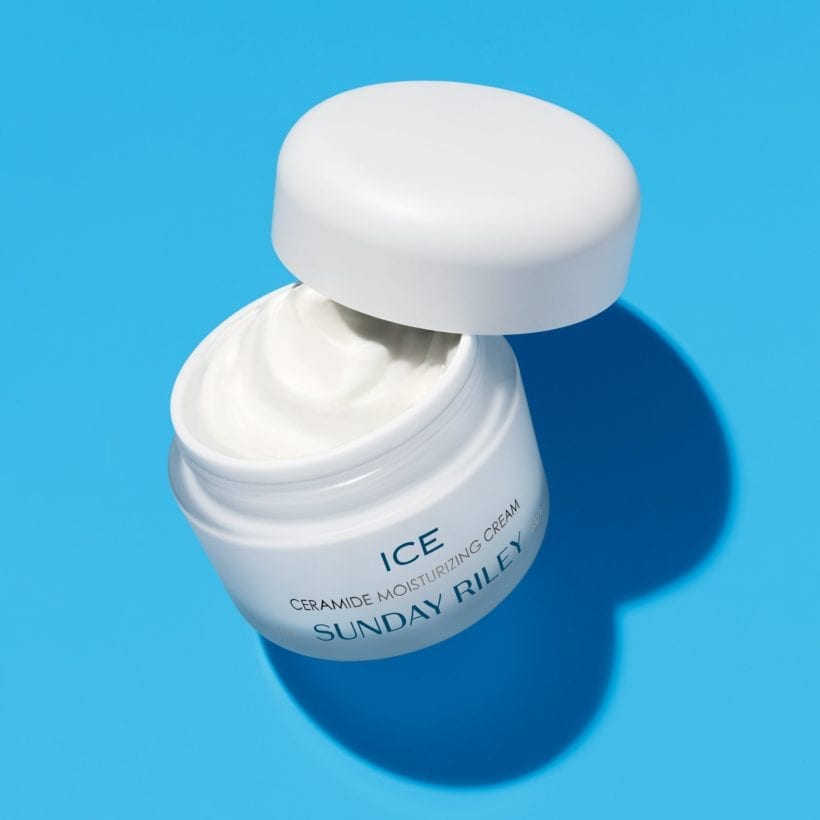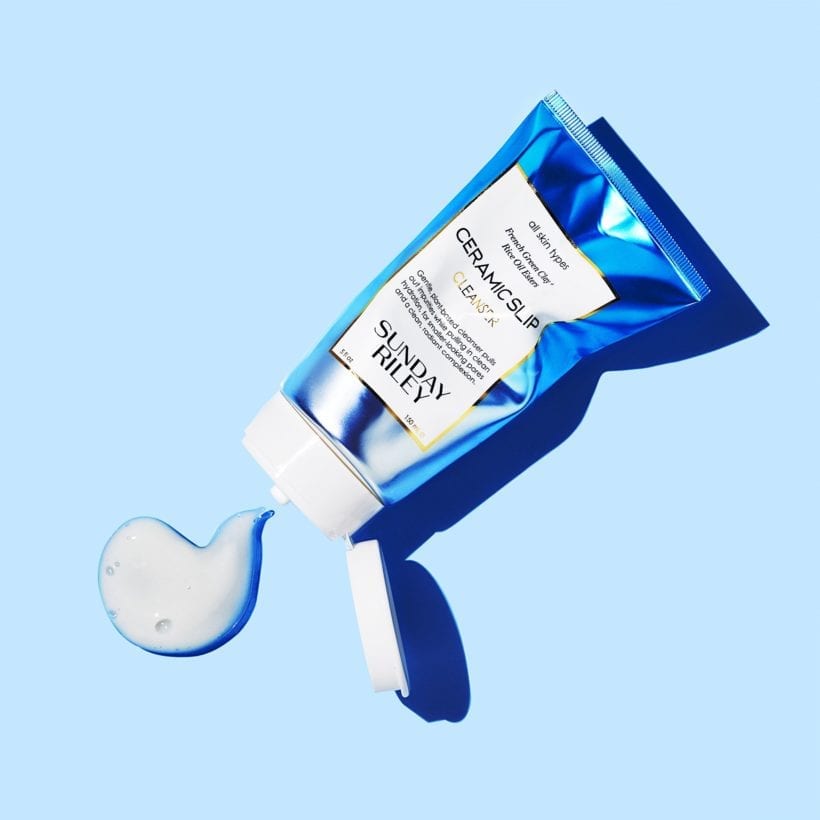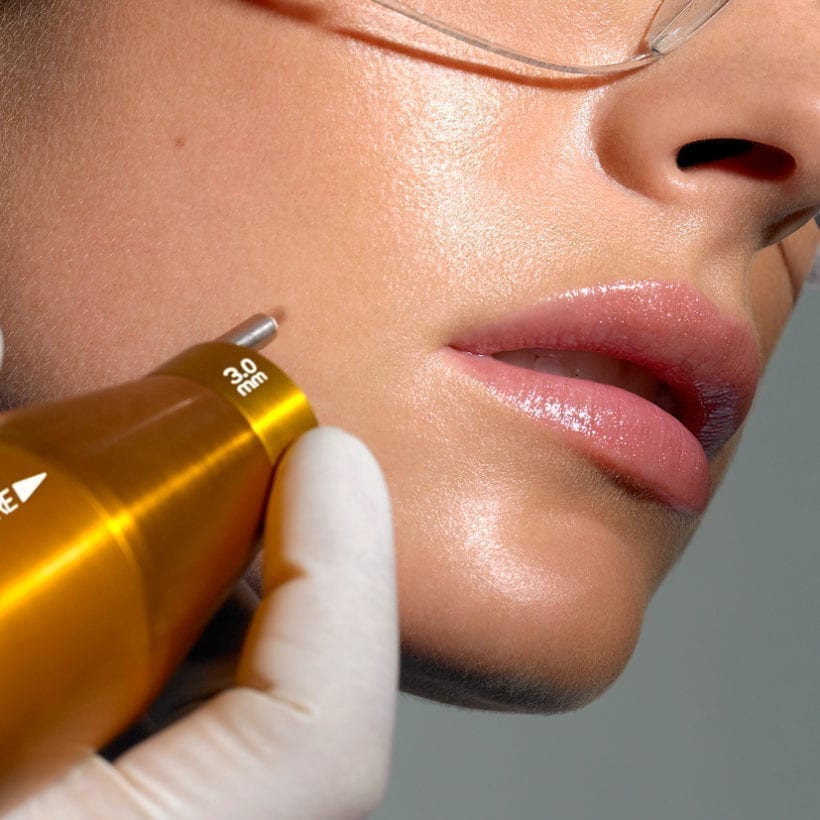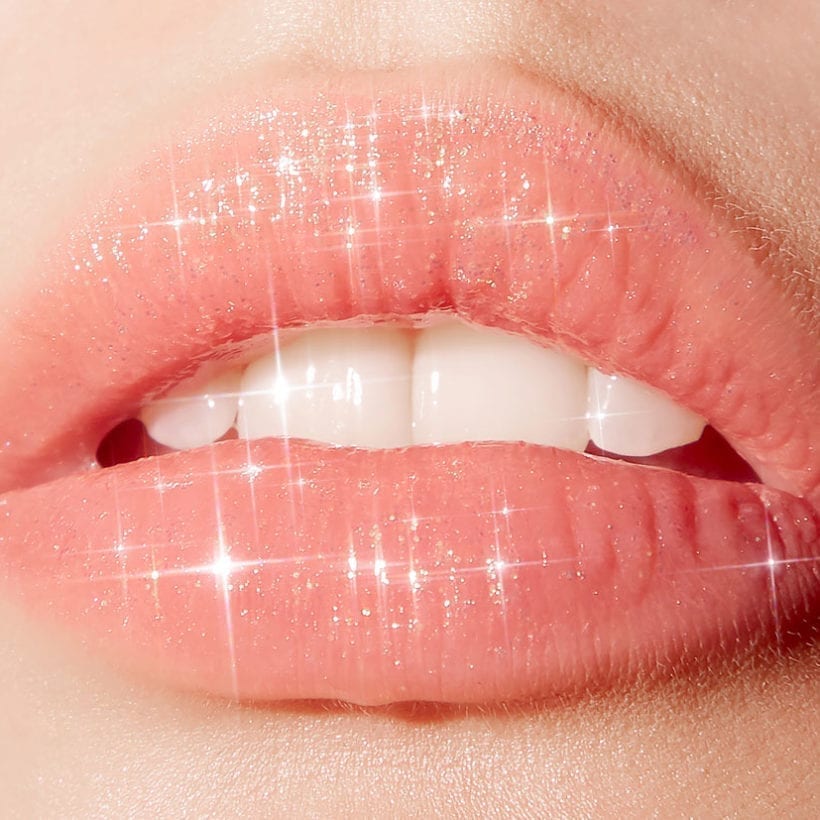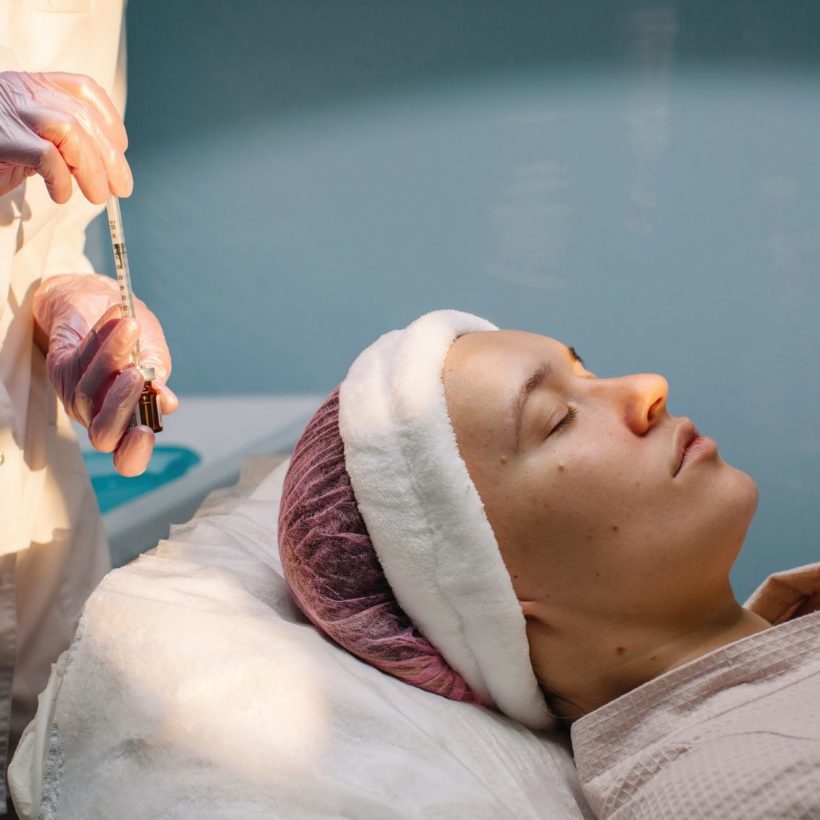Freshly treated skin requires special TLC, and your everyday skincare and makeup routine probably isn’t fitting right after a treatment like a chemical peel, laser, filler, or even plastic surgery. After any procedure, the goal is to protect the barrier and incite healthy healing, which is why plenty of products and ingredients are discouraged from being used. While it may seem like a departure from the norm, it’s only short-term (different procedures dictate different break times), and after one week, you should be clear to resume your regular skin habits.
Easy does it
Post-procedure skincare is all about ensuring that the barrier is well protected, says Dr. Michelle Henry, MD, a board-certified dermatologist. After facials, microdermabrasion, and microneedling, simple hydrating ingredients like hyaluronic acid will keep the skin moisturized. “You can also use vitamin E oil, ceramides, aloe, and lanolin, but discuss using these with your doctor first,” says Dr. John Diaz, MD, a board-certified plastic surgeon.
Ablative lasers and deep chemical peels disrupt the skin barrier. That’s why it’s essential to prevent irritation and inflammation — they can cause hyperpigmentation, prolonged healing, and adverse reactions. “You need to use bland, hypoallergenic, fragrance-free products for about one week,” says Dr. Henry. For the first few days, slather the skin in an occlusive agent — regular moisturizer won’t cut it — that’s petrolatum-based like Aquaphor, and reapply it throughout the day. Another dermatologist favorite is Alastin Regenerating Skin Nectar, which Dr. Henry says, “is great after a really aggressive procedure.”
Those prone to breakouts may think it’s best to veer away from thick occlusives, but just because an ointment is occlusive doesn’t mean it will break you out. “Look for non-comedogenic versions, which won’t clog the pores,” Dr. Henry advises. She recommends La Roche-Posay Cicaplast Baume B5 to patients who want a lighter occlusive but still a good amount of hydration. Acne-prone skin types need to completely lay off all anti-acne ingredients, particularly salicylic acid, benzoyl peroxide, and retinol, further compromising the skin.
Post-surgical patients need to take it one step further. After surgery, Dr. Diaz explains that optimizing skin cell function is necessary for healthy healing and ideal scar formation. “This is why it is important to be careful about what you apply to the skin,” he says. “Many ingredients that improve the skin’s appearance do so by decreasing the function of some cells, like tretinoin, for example.” A powerful ingredient commonly prescribed to improve acne, tretinoin also decreases oil production. “It’s great for acne but bad for scars,” he adds.
Careful Cleansing
Compromised skin requires washing with a gentle, calming cleanser without sulfates and surfactants, like Avene Tolerance Extremely Gentle Cleanser or Sunday Riley Ceramic Slip. It’s also best to avoid cleansing tools and devices, toners, and exfoliating acids and particles at all costs until your doctor gives you the green light to use them.
Surgical areas should be kept dry, especially during the first-week post-op. Dr. Diaz says that moisture promotes bacteria and fungus, which increases the risk of infection. “Exposure to water is not bad, and washing surgical areas with a cleanser and water after a few days is encouraged,” he says. Just make sure the areas are gently dried after. “This will prevent lingering moisture,” adds Dr. Diaz.
Shield your skin from the sun
Immediately after any procedure, it’s imperative to avoid the sun like the plague — the reason: the sun can undo all the damage you just fixed and lead to spots, collagen breakdown, and unwanted pigmentation. Wear a mineral-based sunscreen that offers at least 30 or more SPF.
You can also use a brush-on formula — Jane Iredale Powder-Me SPF 30 Dry Sunscreen gently glides on sensitive skin while providing ample protection.
Back to color
Each procedure dictates the amount of time you’ll need to split from your favorite makeup products temporarily. For example, it’s best to take a two-week hiatus from wearing makeup after a major resurfacing procedure. Surgical patients should also go barefaced for about a week. “This allows the skin time to heal so that the application of makeup won’t interfere with the incisions or the scar,” notes Dr. Diaz. For microneedling and light peels, wait for 48 to 72 hours before applying any makeup to the skin, including tinted moisturizer.
Once it’s safe to wear makeup, Dr. Henry says to go with a mineral powder, such as Bare Minerals Original Loose Powder Foundation SPF 15, which you can wear on top of barrier cream. Other options include tinted moisturizer with SPF such as Macrene Actives High Performance Tinted Moisturizer, and the hyaluronic-infused Beautyblender BOUNCE Always on Radiant Skin Tint, which features tone-adapting shades for a perfect match.
Concealer and foundation dos
Celebrity makeup artist Ivy Sims says that the goal of wearing concealer is to neutralize darkness under the eye. To do so, “first, apply arnica and then use a peach-toned concealer,” she says. “Press it in and tap lightly using your ring finger, which uses the least amount pressure of all your fingers,” she suggests. “This gives a ‘melting-into-the-skin’ effect.”
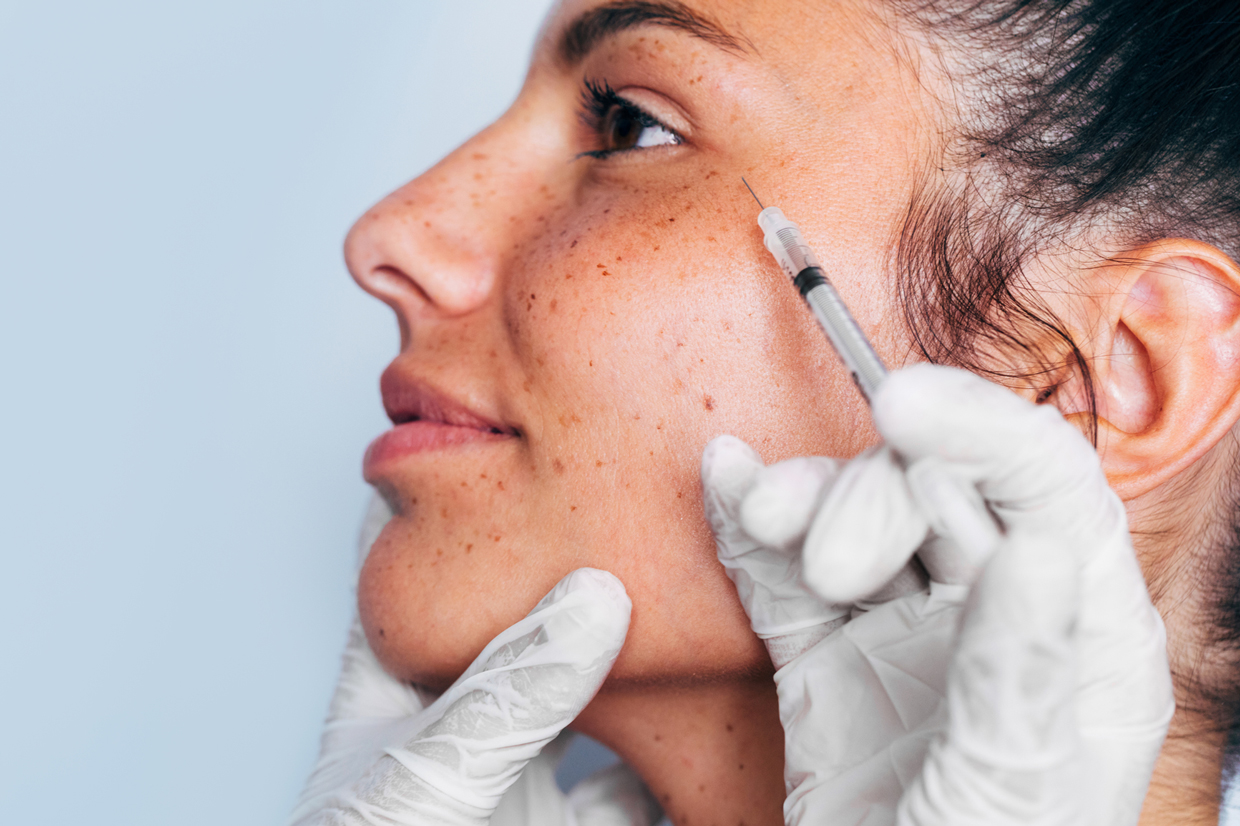
Lori Leib, creative director for Bodyography, adds that orange or peach tones placed on top of the bruise cancel out purple tones from the bruise. “I love Bodyography’s Cover & Correct two-in-one for this exact purpose.”
Sims says that makeup brushes harbor bacteria, so wash them after procedures that involve punctures or injections.
Lip love
Post-lip injection bruises are typical of the procedure, although you can easily conceal them. “Use the same method on the lips as you do for concealing — tap and press concealer to neutralize any color,” advises Sims. “Then, set it with a bit of powder and use a bit of a matte color-stay lipstick, or even just lip liner all over to add color,” she says. Creamy, hydrating formulas, like Hydropeptide Perfecting Gloss Lip Enhancing Treatment, are best since the lips can feel dry, tight, and flaky after injections.
We only recommend products we have independently researched, tested, and loved. If you purchase a product found through our links, Sunday Edit may earn an affiliate commission.

